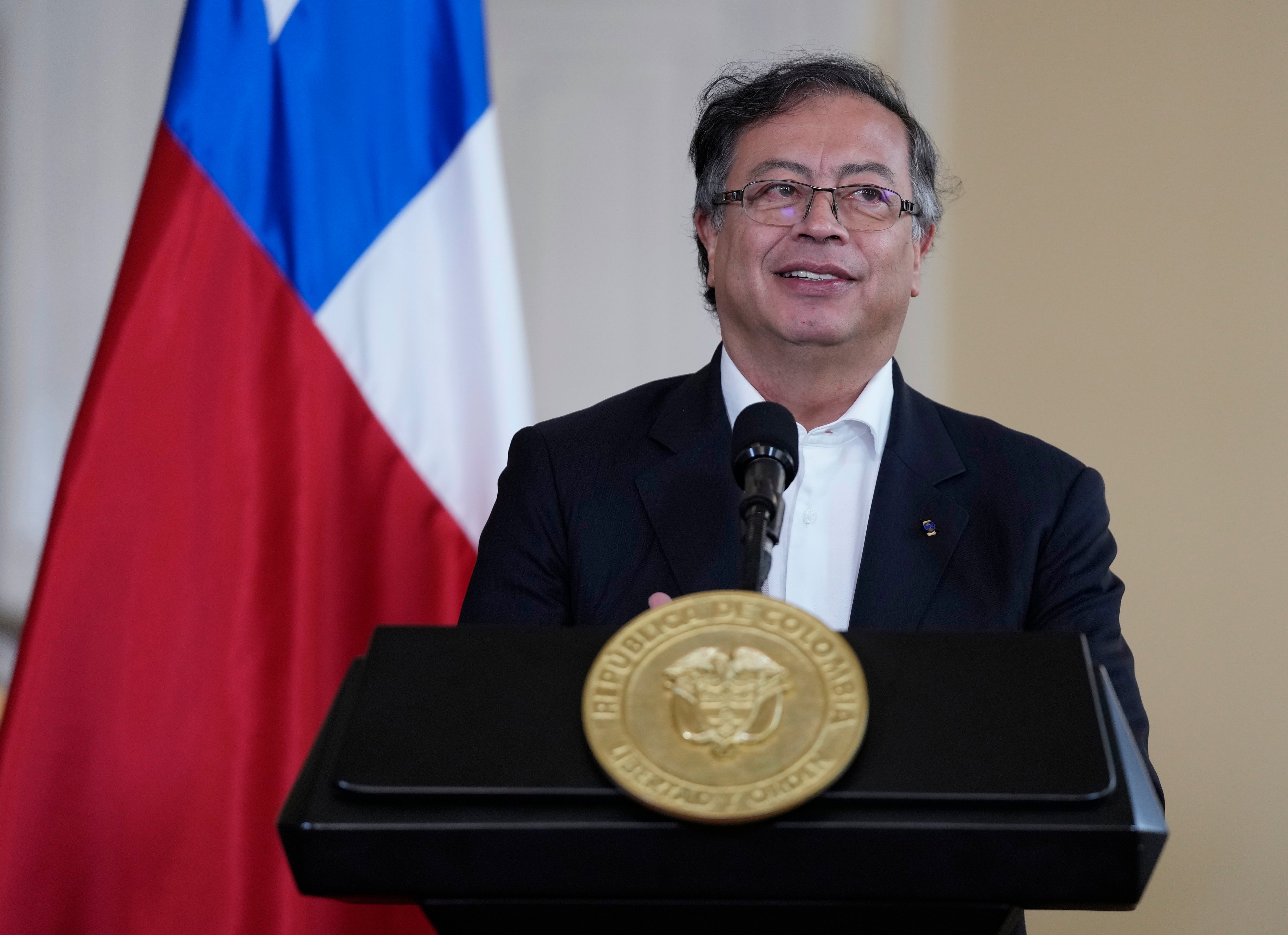Colombia’s leftist president presents ambitious tax plan
Colombia’s first leftist president has presented an ambitious tax plan that aims to raise up to $11 billion a year for anti-poverty programs

Your support helps us to tell the story
From reproductive rights to climate change to Big Tech, The Independent is on the ground when the story is developing. Whether it's investigating the financials of Elon Musk's pro-Trump PAC or producing our latest documentary, 'The A Word', which shines a light on the American women fighting for reproductive rights, we know how important it is to parse out the facts from the messaging.
At such a critical moment in US history, we need reporters on the ground. Your donation allows us to keep sending journalists to speak to both sides of the story.
The Independent is trusted by Americans across the entire political spectrum. And unlike many other quality news outlets, we choose not to lock Americans out of our reporting and analysis with paywalls. We believe quality journalism should be available to everyone, paid for by those who can afford it.
Your support makes all the difference.Colombia’s first leftist president presented an ambitious tax plan on Monday that aims to raise up to $11 billion a year for anti-poverty programs.
Gustavo Petro was sworn into office on Sunday, and has promised to fight economic inequality while investing in rural areas that have long been haunted by drug-related violence.
Less than 24 hours after taking his presidential oath, the new president presented a tax reform plan to his nation’ s congress that will increase income taxes on wealthy individuals and place a 10% levy on oil exports. The bill also includes an annual wealth tax on individuals who have a net worth of more than $750,000 as well as sales taxes on soft drinks and highly processed foods.
Petro, who was formerly a member of a rebel group, has said it is vital for Colombia to increase state spending in order to fight poverty and implement a 2016 peace deal with the Revolutionary Armed Forces of Colombia that includes land reform and rural development programs.
Tax collection in the South American Nation was worth roughly 19% of its total GDP in 2020, which is slightly below the Latin American average. Members of the OECD, an organization made up mostly of developed countries, collect an average of 33% of their GDP in taxes.
Governments in Colombia have long struggled with tax collection because much of the population works in the informal economy. Last year, an effort by conservative President Iván Duque to raise income taxes and some sales taxes sparked massive protests in which more than 50 people were killed.
Petro’s incoming finance minister said the new tax reform plan will only attempt to raise income taxes on the wealthiest 2% of individuals. He has urged Colombia’s wealthiest citizens to accept greater taxation, and addressed the issue during his inauguration speech.
“This should not be viewed as a punishment or a sacrifice,” he said. “It is simply a solidary payment that someone fortunate makes to a society that has enabled them to generate wealth.”
The government has also proposed doubling the nation’s 10% tax on dividends from stocks, and taxing the products of digital companies that aren’t based in Colombia. This might mean that Colombians would have to pay more taxes on their Netflix subscriptions or on books they buy on Amazon.
Colombia’s congress will now have to debate Petro’s proposed plan, which is expected to affect several areas of the economy.